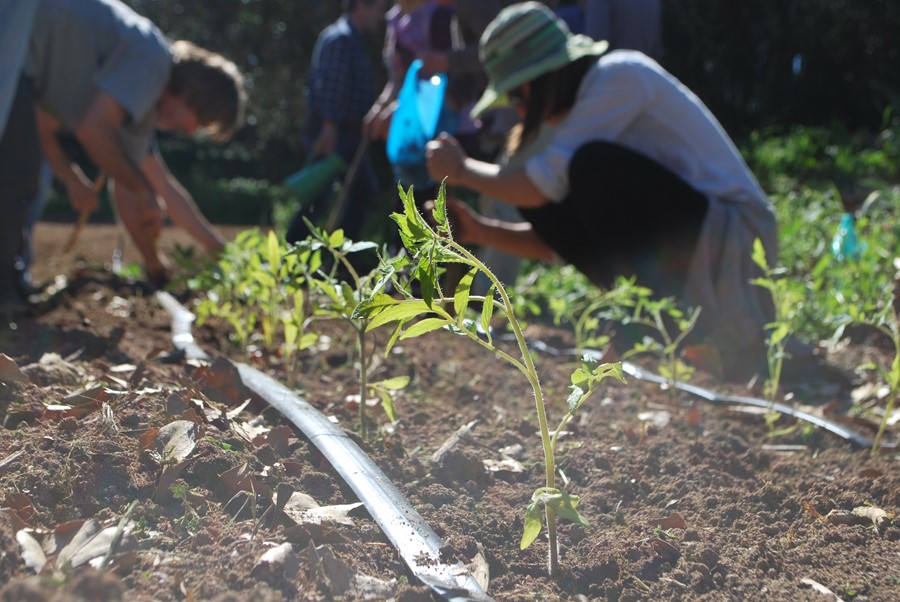
Margarida Alvim is the coordinator of the aTerra project in Portugal, and part of Fundação, Fé e Cooperação (FEC). In this interview, she shares the story of this project and how it was born with the objective to connect local food producers with local schools and local policy makers, both as way to enhance sustainable food production and consumption, and to include and reinvigorate Portuguese rural areas from the center and the north, which are often excluded.
Despite being the most widespread form of farming worldwide, small-scale family farming is threatened by the extent of large-scale industrial agriculture. The globalization of food production has generated a system where a few companies control the supply of seeds, processing, and distribution, among other. Nevertheless, over the years many have observed that we are experiencing the socio-economic and ecological limits of this model.
aTerra was born with the aim to engage local communities with local farmers, and create the necessary links between farmers and local authorities. In this way, the project aims to generate resilient, local, sustainable development, through the sustainable production and consumption of food.
aTerra was created in February 2014 and combines local capacity-building trainings and integration of small-scale farmers, awareness-raising and involvement of the youth through development education in local schools, and enabling the connection between local farmers and local authorities to create and re-invigorate local networks.
Having rural development as a focus, the project aims to link sustainable development policies with the reality of people on the ground, taking into account the specificity of the rural areas and articulating them with global movements and struggles around the transition to more sustainable and ecologically conscious ways of living.
The aTerra experience is a vivid testimony of how regaining ownership over food production by citizens and small scale farmers is a powerful way of reconnecting people with the food that they eat and the people that produce it, establishing a strong sense of community and solidarity, while actively caring for the environment.
Find more information here: http://www.projetoaterra.org/
Watch the aTerra Project Documentary here!
Below, the interview with Margarida Alvim:
